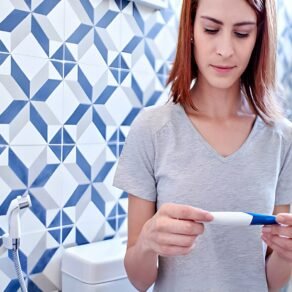The excitement and anticipation of a potential pregnancy can be both exhilarating and nerve-wracking. For many women, the first indication of pregnancy comes in the form of a pregnancy test. These tests, designed to detect the presence of the hormone hCG (human chorionic gonadotropin) in urine, are typically reliable indicators of pregnancy. However, amidst the joy of a positive result, questions may arise about the possibility of false positives. Can pregnancy tests give false positives? Let’s explore this question to understand the nuances and dispel any uncertainties surrounding the accuracy of these tests.
Understanding Pregnancy Tests
Before delving into the intricacies of false positives, it’s essential to understand how pregnancy tests work. Most over-the-counter pregnancy tests use a method known as immunoassay to detect hCG in urine. This hormone is produced by the placenta shortly after implantation occurs, typically around six to twelve days after conception. When hCG levels reach a certain threshold, the test produces a positive result, indicating pregnancy.
Can pregnancy test give false positive
While rare, false positive results can occur with pregnancy tests. There are several factors that may contribute to a false positive result:
- Medications: Certain medications, such as fertility drugs that contain hCG or medications used in fertility treatments, can interfere with pregnancy test results and potentially cause a false positive.
- Chemical Pregnancy: In some cases, a woman may experience a very early miscarriage known as a chemical pregnancy. This occurs shortly after implantation, before a gestational sac can be detected on ultrasound. During a chemical pregnancy, hCG levels may briefly rise high enough to trigger a positive pregnancy test result, only to decline shortly afterward.
- Evaporation Lines: Occasionally, an evaporation line may appear on a pregnancy test after the designated time window for reading the results has passed. These lines, which may be faint and colorless, can be mistaken for a positive result. It’s essential to read the results within the specified time frame outlined in the test instructions to minimize the risk of misinterpretation.
- User Error: Incorrect usage of the pregnancy test, such as using expired tests, not following the instructions properly, or using diluted urine, can lead to inaccurate results, including false positives.
Seeking Confirmation
If a pregnancy test yields a positive result, it’s natural to want confirmation. In cases where doubt or uncertainty exists, it’s advisable to consult a healthcare provider for further testing. A blood test, which measures the level of hCG in the bloodstream, can provide confirmation of pregnancy and help rule out the possibility of a false positive result.
In Conclusion
Pregnancy tests are valuable tools for detecting early pregnancy and providing reassurance to women who are trying to conceive. Can pregnancy test give false positive, they can occur under certain circumstances. Understanding the factors that can contribute to false positives and seeking confirmation from a healthcare provider when necessary can help alleviate any concerns and ensure accurate results. By empowering women with knowledge and guidance, we can navigate the journey of pregnancy with confidence and clarity.





